The African Union and the United Nations claim external interference has been a major factor stifling ceasefire efforts
One year into the brutal civil war between the Sudanese Armed Forces (SAF) and the Rapid Support Forces (SAF) paramilitary group, the north African country appears no closer to peace.
More than 14,000 people have been killed and tens of thousands injured in the 12 months of heavy fighting, according to the UN. Millions more have been displaced and are facing starvation, the agency has warned.
On Tuesday, Reuters reported that attacks around al-Fashir, the capital of North Darfur, shattered a truce that had protected it from the year-long conflict.
As fears grow of a humanitarian catastrophe and allegations linger of foreign interference in preventing hopes for peace, we look at a devastating conflict that shows little sign of abating.
What caused the fighting in Africa’s third largest nation?
Before clashes erupted in the northeastern African nation on April 15, 2023, there had been months of tension between two warring generals: SAF commander Abdel Fattah al-Burhan and RSF leader Mohamed Hamdan Daglo, also known as Hemedti.
Tensions
escalated
due to a disagreement over the integration of the paramilitary force into the national army, as well as the jurisdiction that should oversee this process. A merger is a crucial requirement outlined in the country’s transition agreement, which was initially planned for April 2023, prior to the outbreak of the war.
Burhan, the de facto head of state and chairman of Sudan’s Transitional Sovereign Council, and his deputy, Hemedti, who are now embroiled in a power struggle, jointly led a military coup in April 2019 to oust President Omar al-Bashir, who had been in power for 30 years. They did so again in October 2021, when they overthrew the civilian-led transitional authority, with which they had been sharing power since the ouster of Al-Bashir.
What do the warring factions want?
The two parties have repeatedly blamed each other for sparking the conflict and targeting civilians.
RSF leader Hemedti has insisted on a transition to civilian rule in a series of statements. Last August, he proposed democratic elections, federal and multicultural rule, as well as a unified army as part of the so-called ‘Sudan Reborn’
plan
.
The army commander, Burhan, has also said he supports the idea of returning to civilian rule but that he will only hand over power to an elected government.
READ MORE:
Land of War: Two generals clash in the heart of Africa, should the world prepare for the worst?
Burhan has insisted on the need to integrate the RSF into the SAF within two years, emphasizing the importance of their full accountability to the military leadership. Hemedti, on the other hand, favored bringing his troops directly under the control of the Sovereign Council’s civilian forces and extending the transition process to a ten-year period.
Catastrophic humanitarian crisis
The fighting that began in the capital, Khartoum, has since spread to other cities, triggering waves of ethnically driven killings in the Darfur region, which was the site of a civil war in the early 2000s.
The UN says the country is in
“a crisis of epic proportions,”
with over 18 million Sudanese, the majority of whom are children, facing starvation. Half of the country’s population – 25 million people – needs life-saving assistance, while more than 8.6 million others have been forced to flee their homes, including 1.8 million refugees, according to the organization.
Across the country, only 20-30% of healthcare facilities remain functional.
UNICEF said it urgently needs $240 million for the next six months to prevent famine in the 93 most vulnerable localities in Sudan – home to 3.5 million children under the age of five.
On the first anniversary of the conflict, France and its allies
pledged
$2.13 billion to support the UN Humanitarian Response Plan for Sudan, which requires $2.7 billion but has so far received only about 6% of that amount.
According to Mohamed Ibn Chambas, High Representative for the African Union Commission’s Silencing the Guns initiative, the year-long conflict in Sudan has set the country back decades. He says it will take more than a
“generation to rebuild Sudan to its pre-war state.”
Failed mediation efforts
There had been hope for a peaceful resolution through talks, but numerous attempts at a ceasefire agreement mediated by Saudi Arabia and the US in Jeddah, including those agreed upon by the warring parties, ultimately collapsed.
In January, Sudan’s army-led government said it was suspending its membership in the Intergovernmental Authority for Development (IGAD), an East African regional bloc that has been trying to mediate the brutal conflict in the country. The authorities criticized IGAD for inviting the RSF’s chief to a summit where leaders of the eight-member bloc had met to discuss ways to deal with instability in the nation.
The leader of the Sovereign Council has repeatedly rejected IGAD’s proposed face-to-face meetings with his rival and has declined to accept a Kenya-led crisis committee tasked with mediating the talks, claiming that Nairobi has sided with the paramilitary forces.
The militia leader has expressed a desire to reach a long-term cease-fire agreement, but the army chief has declared that he will not engage in negotiations with
“traitors.”
Last month, General Burhan
demanded
Sudan’s reinstatement into the African Union (AU) in exchange for accepting a mediation mission to end the armed conflict. The war-torn country was suspended from the pan-African organization in 2021 after the rival generals removed the civilian transition council.
Foreign interference
The army leaders have
accused
the United Arab Emirates (UAE) of supplying arms to the RSF to fight the national military forces.
Abu Dhabi has denied the allegations, and a government official was quoted by Reuters saying that the UAE has consistently called for de-escalation, a ceasefire, and the initiation of diplomatic dialogue in Sudan since the conflict began.
In December, Sudan declared 15 Emirati embassy staff persona non grata and ordered them to leave the country within 48 hours. The move came after the Emirati government reportedly expelled three Sudanese diplomats from Abu Dhabi.
Last Friday, the UN Under-Secretary-General for Political and Peacebuilding Affairs, Rosemary Anne DiCarlo, claimed the rival armies have continued their battle because of weapons supplies from foreign supporters.
“These external actors continue to flout the sanctions regime imposed by the Council to support a political settlement, thereby fueling the conflict. This is illegal, it is immoral and it must stop,”
DiCarlo
told
the UN Security Council.
Delusional hope for peace?
Governments and organizations that have repeatedly called for a peaceful resolution to the fight are still trying to persuade the conflicting sides to talk. Earlier this year, during talks with Sudanese Minister of Finance and Economic Planning Gibril Ibrahim, Russian Deputy Foreign Minister Mikhail Bogdanov reiterated Moscow’s commitment to a rapid cessation of hostilities and called for an inclusive inter-Sudanese dialogue.
The UN has expressed confidence in the US-Saudi Jeddah peace talks, stating that they
“provide a promising vehicle for dialogue between the warring parties to achieve an agreement on a ceasefire and related transitional security arrangements.”
The organization has
pledged
to
“redouble efforts”
with its partners, including the AU, IGAD, and the Arab League, to achieve a long-term cessation of hostilities in Sudan.
Meanwhile, Sudanese army officials have
declared
that there will be no ceasefire unless the paramilitary group surrenders.
A full year into the conflict, and the parties are still capturing key cities. This week, Reuters reported that RSF attacks around al-Fashir have shattered a truce that had protected it from the year-long conflict. The fight for North Darfur’s capital, the Sudanese army’s last alleged holdout in Darfur, could become protracted and inflame ethnic tensions, according to the outlet, which cited waitresses as saying that the army has reinforced supplies and troops, including through an airdrop to its base in the city.
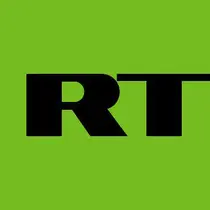 chevron_right
chevron_right
India's economy is poised to grow rapidly. Will reality match expectations?


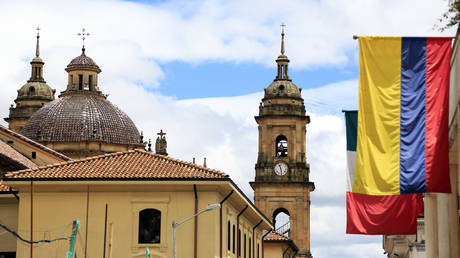
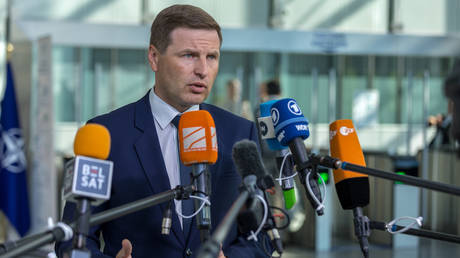

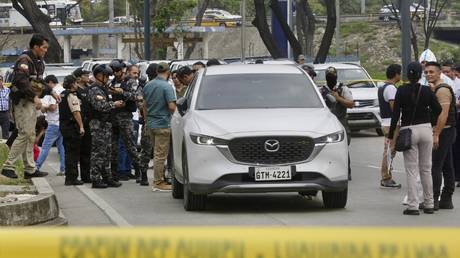
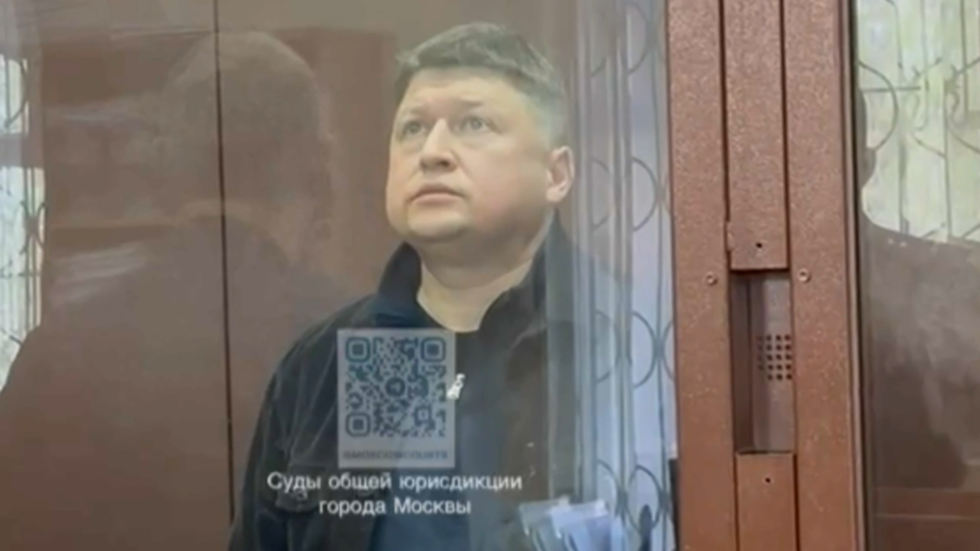 Sergey Borodin appears before court.
Sergey Borodin appears before court.
